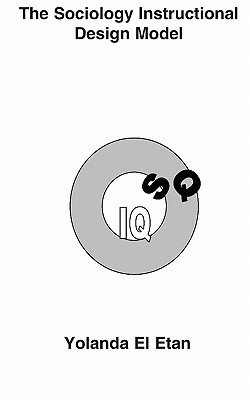
- We will send in 10–14 business days.
- Author: Yolanda El Etan
- Publisher: Best Global Publishing
- Year: 2009
- Pages: 68
- ISBN-10: 1846930707
- ISBN-13: 9781846930706
- Format: 12.7 x 20.3 x 0.4 cm, softcover
- Language: English
- SAVE -10% with code: EXTRA
Reviews
Description
EQ, IQ, and Social Intelligence IQ When I looked up the word IQ, or intelligent quotient, I came across a test that is used to measure a subject's ability to confront situations that they might confront in life. However, Many people think of IQ as a learner's ability to do intellectual or academic tasks. It is the computation of intelligence (Encyclopedia Britannica 2006). EQ is based on the concept of knowing oneself through emotions before we can learn about others and engage in academic dialog, (Goleman 1985). Goleman tries to connect the emotions to learning, and then allows his discussion to go into social intelligence. For example, you might react to a situation based on your emotions then there is a path to learning. He uses the emotions of fear, happiness and combines these emotions with understanding of ones self and understanding of others as a basis for learning. However it doesn't take one long to realize that this travels into the slope of psychology, sociology that is all social sciences. Techniques used in teaching EQ are often associated with morals, manners, and etiquette, which are all social. EQ is more appropriate that EQ comes out of the constructivist theories of today. These are similar to Steps 1, 3, 8 of Gagne's Nine Events in the Principles of Instructional Design (1979).
EXTRA 10 % discount with code: EXTRA
The promotion ends in 20d.07:29:58
The discount code is valid when purchasing from 10 €. Discounts do not stack.
- Author: Yolanda El Etan
- Publisher: Best Global Publishing
- Year: 2009
- Pages: 68
- ISBN-10: 1846930707
- ISBN-13: 9781846930706
- Format: 12.7 x 20.3 x 0.4 cm, softcover
- Language: English English
EQ, IQ, and Social Intelligence IQ When I looked up the word IQ, or intelligent quotient, I came across a test that is used to measure a subject's ability to confront situations that they might confront in life. However, Many people think of IQ as a learner's ability to do intellectual or academic tasks. It is the computation of intelligence (Encyclopedia Britannica 2006). EQ is based on the concept of knowing oneself through emotions before we can learn about others and engage in academic dialog, (Goleman 1985). Goleman tries to connect the emotions to learning, and then allows his discussion to go into social intelligence. For example, you might react to a situation based on your emotions then there is a path to learning. He uses the emotions of fear, happiness and combines these emotions with understanding of ones self and understanding of others as a basis for learning. However it doesn't take one long to realize that this travels into the slope of psychology, sociology that is all social sciences. Techniques used in teaching EQ are often associated with morals, manners, and etiquette, which are all social. EQ is more appropriate that EQ comes out of the constructivist theories of today. These are similar to Steps 1, 3, 8 of Gagne's Nine Events in the Principles of Instructional Design (1979).


Reviews